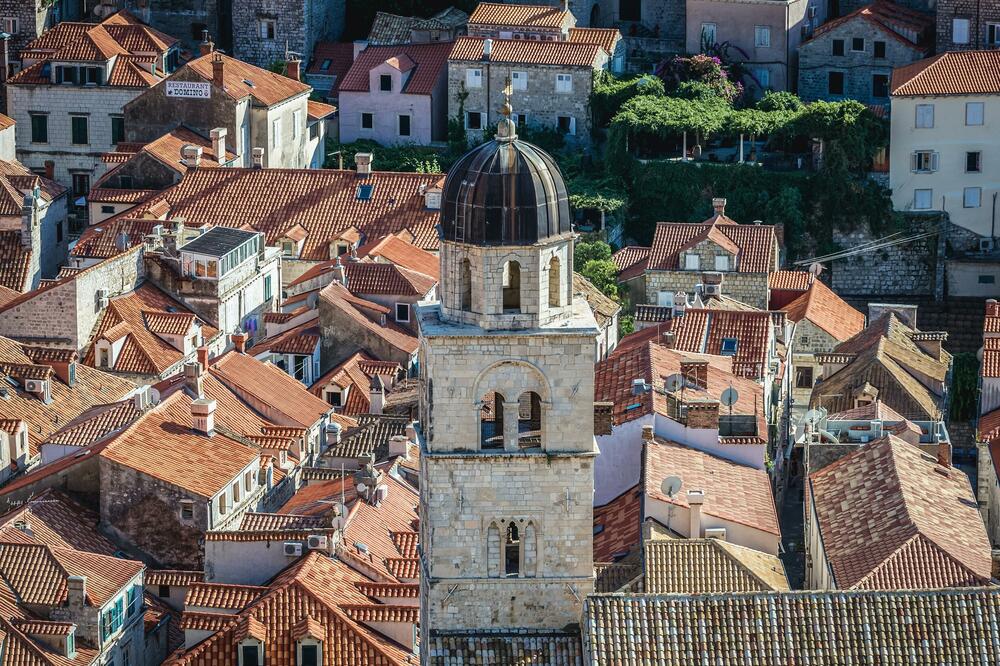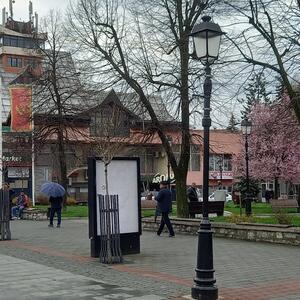"Dubrovački vjesnik" referred to the fact that Vukoman Tešović and Branko Krvavac were given the streets in Pljevlja, saying that Krvavac was a soldier in the aggressor's uniform and a small cog in a big machine that wanted to "wipe the Croats off the face of the earth".
"Fortunately or unfortunately, news from the neighborhood travels fast these days. One such news is that the municipality of Pljevlja in Montenegro decided to celebrate its war heroes by naming streets after them. Vukoman Tešović and Branko Krvavac thus earned that their names shine eternally on metal plates", it says in the text under the title: "Shame has not yet arrived in Pljevlja, and we don't know what it will do".
"Vukoman Tešović, they write from the neighborhood, died as a young man while serving his military service in 1999 on the border with Albania during the NATO aggression, while Branko Krvavac is a special story for us. He died, they claim in this Montenegrin municipality, on "On October 23.10.1991, 1991, he was hit by a sniper's bullet. What was he doing, from Pljevlja, in the uniform of the JNA?" answer us, but his municipality offers the answer, with some reservations. Sniper, October XNUMX? I don't know, someone explain this to me science fiction. Another interesting thing is how the municipality with 30 thousand souls still lives heroic war stories, the eternal hobby of aggressors in which, if we look through history, they also lose eternally, which I guess gives them a special charm and creates a fame that is so dear to them that they still gather her like moths to a flame. And that flame in Pljevlje, and not only there, burns like an Olympic torch with an eternal fire that neither past years, nor facts, nor truth, nor shame can extinguish," the text states.
They say that they know what it means that Krvavac, as a member of the JNA, was on the Dubrovnik battlefield.
"You shouldn't sin against your soul, maybe he, like many members of the JNA, especially the young ones, didn't want it at all, but here he was. We know, everyone is only human, it's the worst punishment for any parent. But that's not what we're talking about here. Never with That peace is always fragile, it creaks menacingly, and if we looked into the basements of the houses of this municipality, it is likely that that peace would rattle with the whole arsenal of weapons. That Krvavac, and that bullet from the alleged sniper in Dubrovnik area in October 1991 sounds funny, but I guess they had to invent some explanation for the death of their soldier. One of those who contributed to the worst disaster that ever happened to us, and it didn't happen again.
They remind that Dubrovnik has Ulica branitelja Dubrovnik, Ulica Nojko Marinović, Ulica Miljenko Bratoš and Ulica Janko Bobetka.
"Nojko Marinović, commander of the City's defense, recognized the whites when the time came and chose the right side. He left us after an illness in 2021. Miljenko Bratoš, one of the most meritorious organizers of the City's defense, died while visiting the front line in October 1991, and left behind his wife and children, son Hrvoje and daughter Mara, a well-known photographer. Janko Bobetko, the commander of the southern battlefield, earned his place in Gruž. Many years have passed since their merits in the Homeland War for the renaming of streets to give them the names of veterans," it added.
In Pljevlja, writes the author of the text, "soldiers are not discriminated against".
"It doesn't matter if they were defending or attacking, the murals, the names of the streets, if it continues for several years, the names of those who burned our houses, schools, kindergartens, sports halls will be given to their houses, schools, kindergartens, sports halls. Everything is a matter of perspective Each of us will have at least ten examples of friends, relatives, and neighbors who have lost their heads. What we have now is quite decent the news about Mario Pezzi and the shock that this friend was left without a father, what can I say to her that makes sense? I remember my neighbor, the late fireman Ante Jablano Dubrovnik area, which Ante and his colleagues extinguished. I remember those attacks, that hell we lived in, I also remember the news that arrived at our Lapad entrance with lightning speed, without electricity, and with rare telephone connections. I remember the first real feeling of shock – how, why, did a man we knew suddenly disappear? I also remember all the news about all the young men we knew, that our parents knew, who lived with us. I remember a boy a little younger than me, Đuro Bokun, and his mother, who I don't know how is still breathing and functioning. She has not heard of a certain Branko Krvavac. Maybe even better," says the author.
He also says that "shame did not reach Pljevlja".
"The monument to the children who died in the Homeland War is coming, I'm very happy about it. It's beautiful, those broken colored pencils evoke a strange mixture of children's innocent happiness and immense sadness. It took years for that to happen. All thanks to people like the aforementioned Branko Krvavac. Who knows when that soldier, in the aggressor's uniform, will get killed attacking Dubrovnik, and he was a cog in the big machine that intended to wipe us off the face of the earth When Mujo was learning German, the perspective changed only by changing sides. When you look at him from here, how do you tell him to go there? So do our neighbors. s) those parties," the text concludes.
Bonus video:





